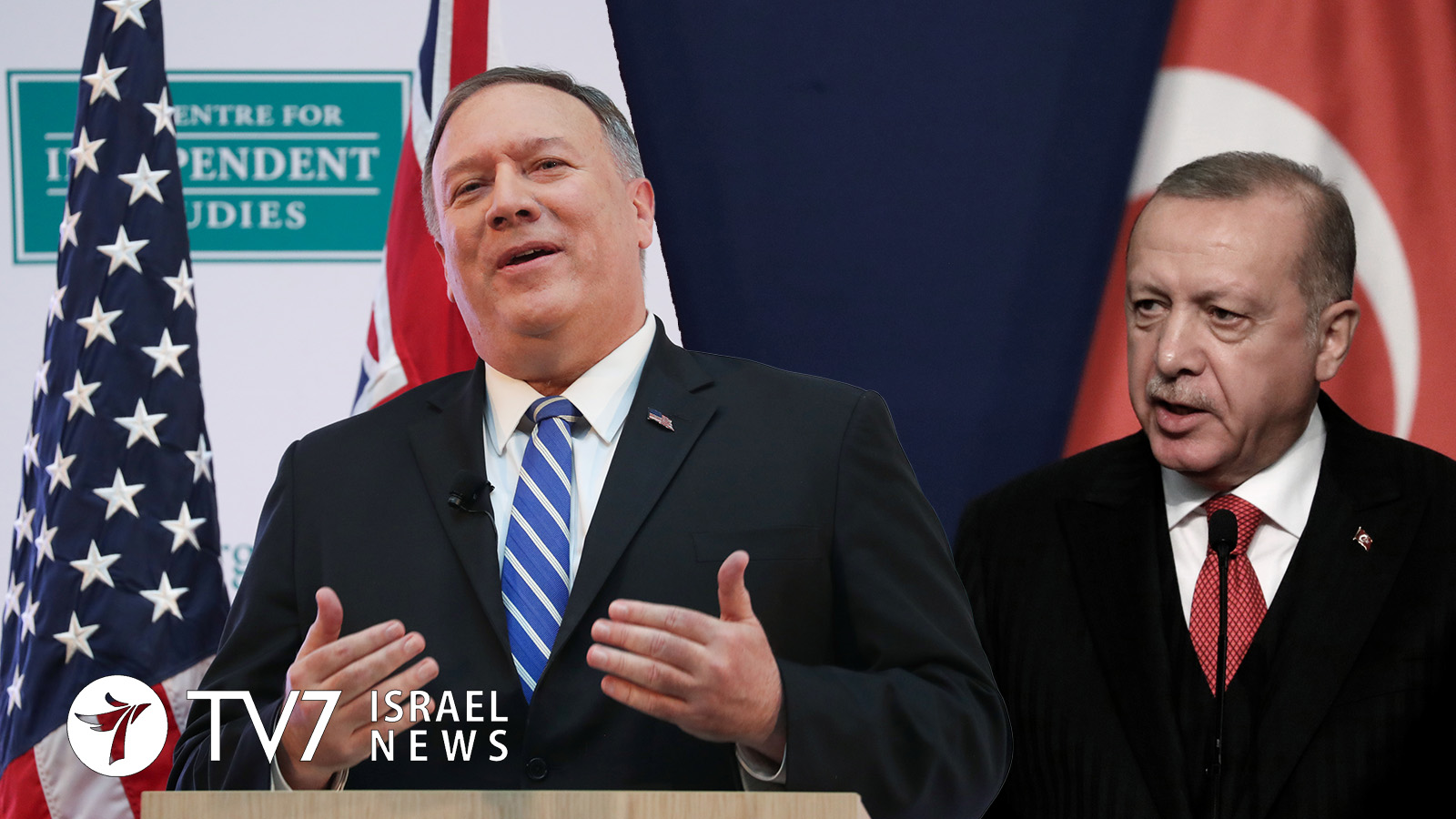United States Secretary of State Mike Pompeo said that his country needs to work jointly with Europe to address actions led by Turkey in the Middle East over the past several months.
Pompeo, who is amid a 7-nation tour, made the statements to the French Le Figaro daily newspaper. Between 13-23 November, the top U.S. diplomat will visit France, Turkey, Georgia, Israel, the United Arab Emirates, Qatar, and Saudi Arabia.
“France’s President Emmanuel Macron and I agree that Turkey’s recent actions have been very aggressive,” Pompeo said, citing Turkey’s recent support of Azerbaijan in the Nagorno-Karabakh conflict with Armenia as well as military moves in Libya and the Mediterranean Sea. Even though Washington has maintained good relations with Ankara during the administration of U.S. President Donald Trump, there has also been disagreement over the aforementioned issues, as well as Turkey’s acquisition of the S-400 air defense system from Russia.
In reference to Turkish President Tayyip Erdoğan, Pompeo said “Europe and the U.S. must work together to convince Erdogan such actions are not in the interest of his people.”
Pompeo remarked that increased use of Ankara’s military capabilities are a concern, although he held back from stating whether Turkey, which hosts U.S. military forces at its Incirlik Air Base, should remain a member or withdraw from the North Atlantic Alliance.
Even though he will be stopping in Turkey, it is notable that Pompeo will not be meeting with any leaders as he will on his other stops. According to the State Department, a tight schedule will prevent him from meeting any Turkish officials in the capital but he will “travel to Istanbul, Turkey to meet with His All Holiness the Ecumenical Patriarch of Constantinople, Bartholomew I, to discuss religious issues in Turkey and the region and to promote our strong stance on religious freedom around the world.”
In a sign of ire over their exclusion, the Turkish Foreign Ministry released a statement that while the country has no issue with anyone coming to visit, it does take issue with American judgement regarding religious freedom in Turkey. “It would be more suitable for the United States to first look in the mirror and show the requisite sensitivity towards human rights violation in the country such as racism, Islamaphobia and hate crimes,” read the statement.
Meanwhile, Turkey has vowed to continue its activities in the eastern Mediterranean undeterred.
“Nobody should think that we stopped drilling in the Eastern Mediterranean. Yavuz drillship finalized operations at depths of 6,000 meters in the Selcuklu-1. We got hopeful results from there,” proclaimed Turkish Energy and Natural Resources Minister Fatih Donmez, adding, “And there will be, God willing, new drillings soon near to this region.”
Turkey is engaged in extensive efforts to secure its legitimacy in the Eastern Mediterranean. During a visit to Northern Cyprus over the weekend, Turkish President Erdoğan reiterated his call on the southern Greek Cypriots to engage in dialogue toward a Two State solution.
While addressing a large crowd of supporters, the Turkish head of state did not shy away from his keen interest to secure his country’s share of offshore energy dividends, while warning opponents to immediately cease delaying tactics.
The “Greek side does not want to share the welfare power with the co-owners of the island, Cypriot Turks and they openly say it. That is why, they are trying to avoid to sit down with Cypriot Turks about the hydrocarbon sources,” stated Erdoğan, underscoring that, “As the guarantor country, neither we nor the Turkish Republic of Northern Cyprus can tolerate diplomacy games anymore.”
